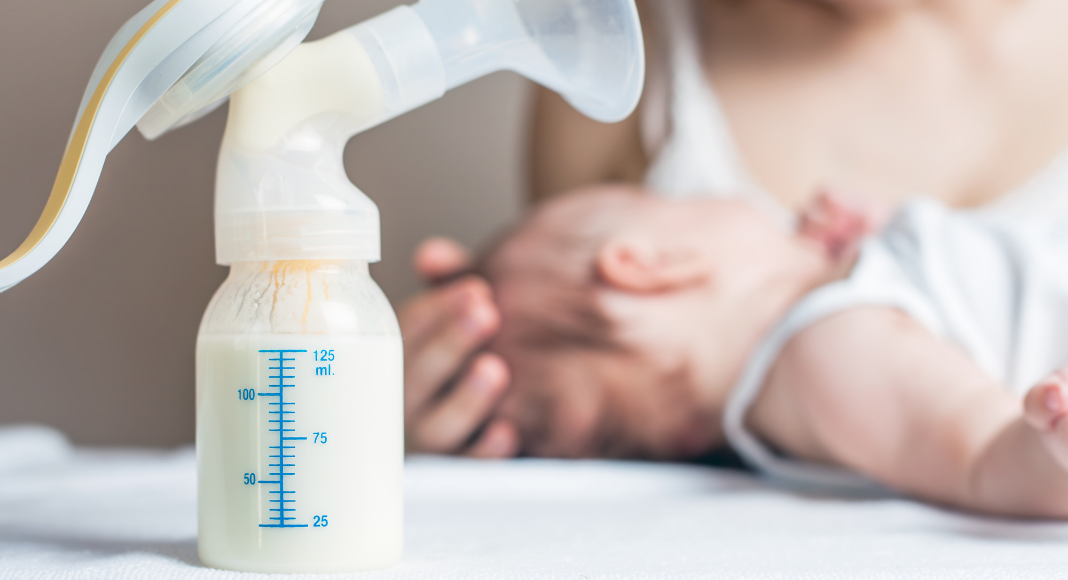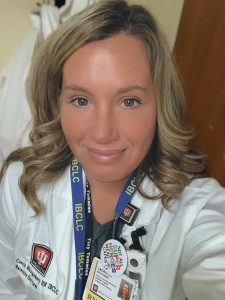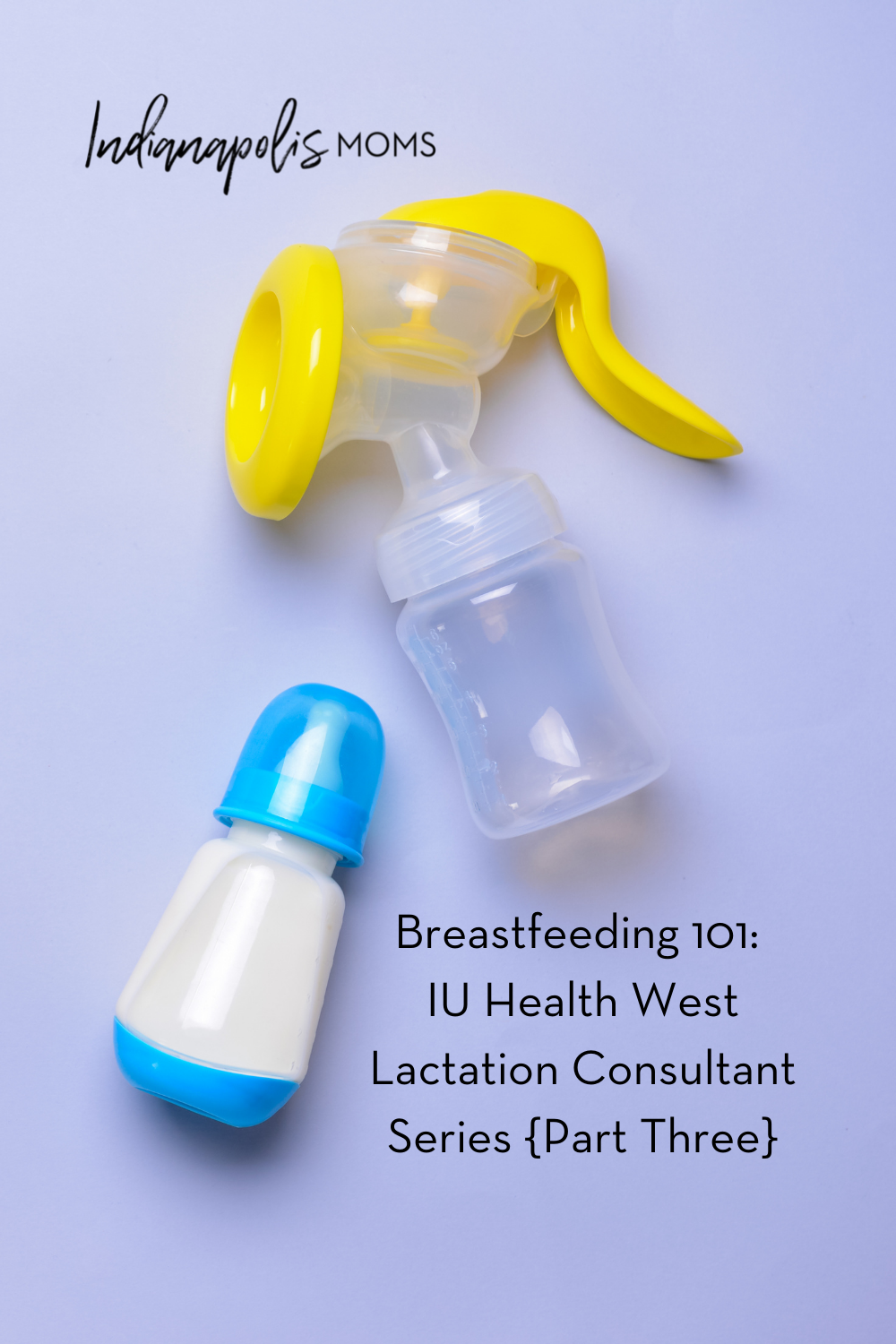Are you expecting your first child? A new mom on maternity leave? Or a veteran mother about to add another child to your family? No matter where you are in motherhood, you will likely have questions about breastfeeding. And we’ve got answers for you! Join us for Part Three as Crecia Montgomery, an International Board Certified Lactation Consultant (IBCLC) at IU Health West Hospital, continues to answer our questions about all things breastfeeding. Also, make sure not to miss Part One and Part Two of our series!
 Do lactation consultants get training in EPing, aka exclusive pumping? Any need-to-know tips for new moms or new breastfeeding moms?
Do lactation consultants get training in EPing, aka exclusive pumping? Any need-to-know tips for new moms or new breastfeeding moms?
Lactation consultants do receive education in all areas of lactation including exclusive pumping in general, says Montgomery. “Keeping up with advances in pump technology is something that we have to do often especially now as it seems there are so many new companies all striving to bring the best products to breastfeeding/pumping moms.” Montgomery continues, “While breast pumps come in all different shapes and sizes and have different options that may make one brand more appealing over another or easier to use compared to others, the process by which we instruct moms to use the pumps to initiate and maintain or build their milk supply remains largely the same.”
Montgomery encourages moms who are planning to exclusively pump to invest in a reliable, double electric pump and to spend some time getting to know the pump. Learning how to operate it correctly before using it the first time is important. She also recommends you select a pump that is relatively easy to get replacement parts for quickly if you ever need to. Another great tip is learning hand expression. Not only is hand expression important for the first few days postpartum when the pump will likely not be able to remove colostrum effectively for the baby, but it is also important if you are without your pump for any reason and need to know how to remove milk from the breast.
“Plan to pump as often as you would be putting the baby to the breast if you were directly breastfeeding,” says Montgomery. “We teach our exclusive pumping moms ‘hands on pumping,’ which combines breast massage and intermittent hand expression with electric pumping to more effectively express milk than pumping alone.” Montgomery encourages all breastfeeding moms to identify their support system and individuals they can go to for information and assistance when needed. Meeting with a lactation specialist prior to delivery to get information and questions answered can also be very valuable and may relieve some anxiety about how and when to get started with pumping and what to expect beginning after delivery and as lactation progresses.
Can you clarify the new guidelines for storing milk?
According to Montgomery, there has been a lot of chatter regarding a statement reportedly released from the American Academy of Pediatrics (AAP). This recent statement cites updated guidelines on the topic of combining expressed breastmilk from different pumping sessions over the course of 24 hours, specifically as it pertains to adding freshly pumped milk to already chilled milk. Some of the websites reporting the announcement provide a link to the AAP page where this new information is supposed to be found. However, to date, the AAP, CDC (Centers for Disease Control and Prevention), nor HMBANA (Human Milk Banking Association of North America, Inc.) have published formal changes to their recommended milk storage guidelines to include this new information.
“For this reason, we are continuing to encourage moms to chill milk from different pumping sessions individually prior to combining and to continue to only combine milk pumped over the course of 24 hours,” Montgomery says. “The benefits of pooling milk are still obtained even when chilling the milk individually prior to combining.” She continues, “There has been a change to the guideline regarding the saving and re-chilling of breastmilk leftover from a feeding to be used only once more at the very next feeding within 4 hours for healthy, term babies. This is different than previous recommendations which required the baby to finish a bottle of expressed breastmilk once started within 1-2 hours or it must be discarded. Babies in the NICU are not included in the updated guideline.”
Support Groups/Services – Are there any breastfeeding support groups or services you recommend?
“Through our partnership with IBCLCs across the IU Health organization, we offer support to new moms through a variety of breastfeeding classes as well as one-on-one support from our experienced lactation specialists where moms can ask questions and get helpful tips for breastfeeding success,” says Montgomery. If you have any questions, please call the IU Health West Hospital Lactation Department at 317.217.3639.
Thank you for joining us for our Lactation Consultant at IU Health West three-part interview series! If you missed them, Part One covered Covid antibodies, the pros/cons of using a nipple shield, and tips on nursing time. Part Two of our series covers formula supplementation, tips on breastfeeding a gassy baby, and tips on using the Haakaa.
 About Crecia Montgomery (IBCLC)
About Crecia Montgomery (IBCLC)
Crecia Montgomery is an International Board Certified Lactation Consultant (IBCLC) at IU Health West Hospital. She is a 2003 graduate of the Indiana University School of Nursing. Her nursing experience includes pediatrics and labor and delivery prior to becoming certified in lactation, where she has worked since 2016. Crecia has three sons and one daughter, absolutely loves baseball, and is a huge San Diego Padres fan.
Indiana University Health
Named among the “Best Hospitals in America” by U.S. News & World Report for 22 consecutive years, Indiana University Health is dedicated to providing a unified standard of preeminent, patient-centered care. A unique partnership with Indiana University School of Medicine – one of the nation’s leading medical schools – gives our highly skilled physicians access to innovative treatments using the latest research and technology. Learn more at iuhealth.org.










